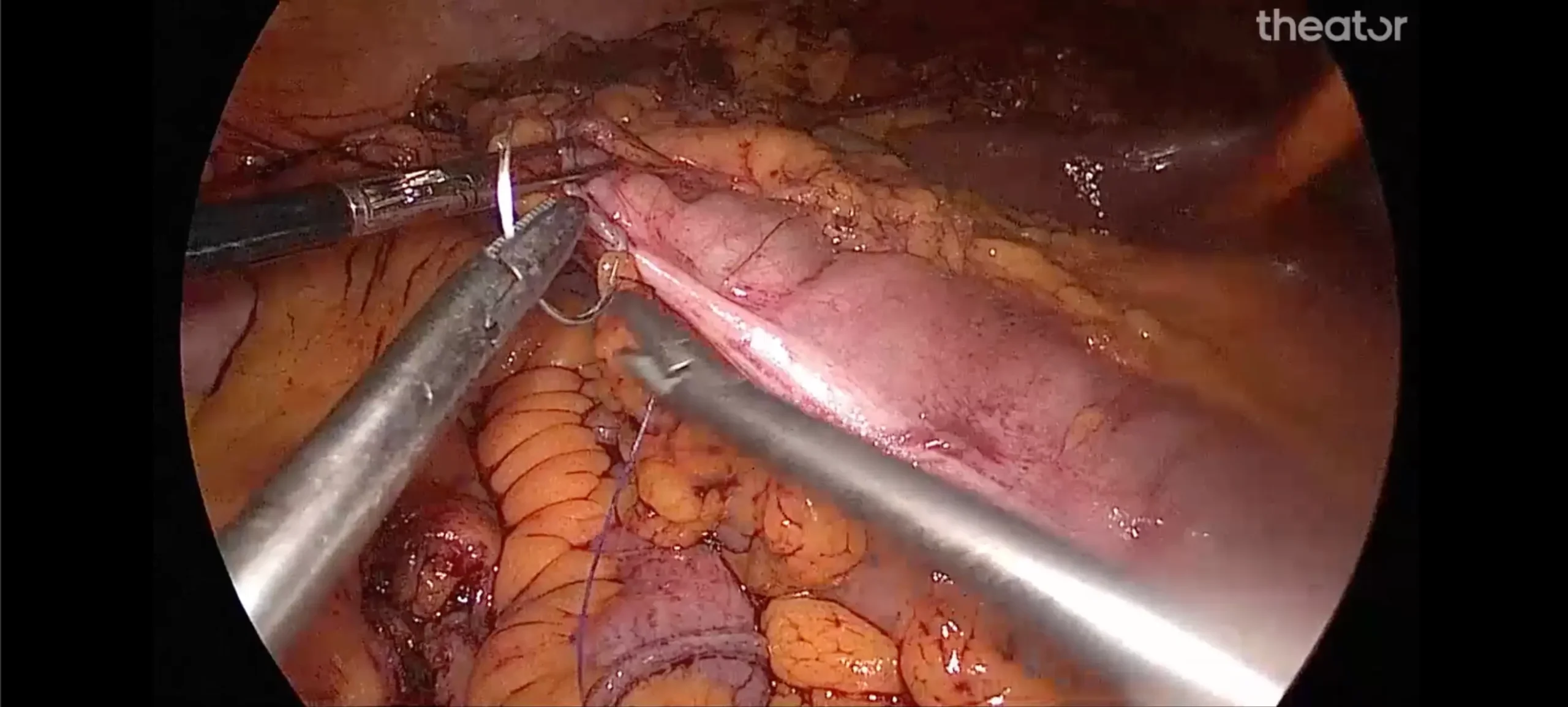
Tough Mornings, Honest Questions
It’s exhausting, isn’t it? You wake up, wondering which version of your body is going to show up today. Will you spend the morning glued to your bathroom? Or maybe you’ll be hit with a wave of fatigue that wasn’t there yesterday? If you’ve had a right hemicolectomy—whether for colon cancer or something else—these questions might feel all too familiar.
Honestly, there’s not a lot that prepares you for life after they remove part of your colon. The world moves on, you look “okay,” but your gut and energy have a mind of their own. So let’s talk… real talk. What’s it actually like? Can things really get better? And why do so many people (myself included, after a couple family members went through this) seem to compare notes on bathroom stories like war wounds?
Why Is Everything… Different?
What Actually Changes?
Here’s what your doctor probably explained (but maybe in a way that made your eyes glaze over): the right side of your colon is kind of the “water manager” for your bowels. Take out that part, and—surprise!—your body now struggles to absorb fluids the same way. Suddenly, loose stools and running-not-walking-to-the-loo aren’t just annoying. They’re your reality, at least for a while.
And yes, it can get better, but there’s a learning curve.
Table: Before vs After Right Hemicolectomy
| Aspect | Before Surgery | After Right Hemicolectomy |
|---|---|---|
| Stool Consistency | Usually formed | Often looser, up to 1 in 5 folks |
| Frequency | 1-2 times daily | 2-4 times… sometimes more at first |
| Energy | Steady (on good days) | Surprisingly zapped, but can rebound |
“But Will This Ever End?”
Good news? According to research on minimally invasive right hemicolectomy, most people see gradual improvement with time. Only about 10% need ongoing medications, and many symptoms mellow out within the first year. But let’s be real—there’s always that 10% having the same “bathroom bingo” several years later. If that’s you… you’re not alone.
Small Tweaks, Big Wins
What Nobody Warns You About
I remember chatting with Sarah (not her real name), a teacher in her fifties who started every morning literally racing her dog to the bathroom. She told me, “I started calling myself the Poop Fairy. I grant wishes for anyone who wants to go first.” Her secret to less chaos? She swapped her strong coffee for peppermint tea and added a dollop of chia seeds to her yogurt. Simple… but it helped.
Nutritional tweaks like this make a huge difference. Fiber—yes, the rough stuff—slows things down. Hydration becomes less about “should I?” and more like “must I, or else?” Snacks get experimental. Some people rediscover smoothies, some swear by plain rice and bananas for “those” days.
Drop In: The Long-Term Picture
Sure, you might be wondering about long-term side effects of right hemicolectomy. Bile acid issues. Bacterial overgrowth. Weird gurgling sounds in meetings. They’re real, and sometimes they stick around longer than you want. But most folks settle into a “new normal” over time—especially if doctors and nutritionists are looped in early and often. Early check-ins matter (seriously, don’t skip those appointments just because you’re tired of clinics).
Let’s Talk Movement (Not Just in the Bathroom!)
Getting Your Energy Back
There’s this myth that after major surgery, you’ll never run again. Well, meet Mike. Six months after his hemicolectomy, he started walking around the block—slow and steady, often stopping to “window shop” at other people’s flower beds more than he cared to admit. But he kept at it. By his one-year anniversary, he was hiking trails with friends. “I wasn’t trying to be an athlete,” he laughs, “just didn’t want to feel like a piece of furniture.”
Movement accelerates recovery in a sneaky way. It reduces bloating, lifts mood, and helps you sleep better (bonus!). Even slow walks or gentle yoga stretches count. According to guidelines for cancer recovery, regular movement equals a real energy boost and less fatigue. You don’t need a marathon medal—just aim for consistency.
Living (And Laughing) With Lingering Symptoms
How Much Does Quality of Life Change?
This is the million-dollar question, right? Let’s not sugarcoat: for some people, the changes stink—literally and figuratively. But trends in the research show that most people bounce back and lead full, active lives again. The quality of life after right hemicolectomy is actually pretty good for most, especially as you get used to new routines (see Cleveland Clinic’s overview). Sure, you modify plans sometimes (maybe avoid that super-spicy curry night), but it doesn’t mean life shrinks to your living room and the loo.
Life hacks? Carry “just in case” supplies (wet wipes, extra underwear, anti-diarrhea tablets) tucked in your bag. Keep humor handy too. If you can joke about judging public bathrooms by scent and speed of the hand-dryer, you’ll do fine.
About The Long Haul
If you’re quietly worrying about life expectancy after right hemicolectomy, take a breath. For most folks, especially when it’s done to cure early cancer or another treatable condition, the prognosis is really good. Your remaining colon does extra duty, and with smart care, you can expect to live a full, active life. Still… everyone wants reassurance, so don’t feel bad for asking the big questions.
The Emotional Rollercoaster Nobody Mentions
It’s Not Just Your Body That Changes
There are moments nobody talks about—the frustration when your favorite pants suddenly don’t fit the same. Or when someone says, “You look so good!” and you’re secretly wondering if your insides will ever cooperate for a stress-free day out. It’s normal. Give yourself grace.
Some folks even end up in support groups—online or in real life. Sometimes it’s just to vent, sometimes to swap recipes, sometimes to share darkly funny memes about intestines. (What can I say? Laughter is, in fact, medicine.)
If you ever feel stuck in a rut, or just need perspective, dig into stories from people who’ve been there. You’d be surprised how normal it becomes to debate fiber brands or schedule workouts around “predictable” time windows. Real talk: you’re not weird. You’re surviving something huge.
Tips That Actually Work (Well, Mostly)
Daily Wins and Setbacks
The thing about managing your post-op life? There’s no magical checklist. But these are crowd favorites, tested by folks in the trenches:
- Fiber, but not too much. Start slow. Oats work for some; others swear by psyllium (Metamucil, anyone?).
- Keep a bathroom map. If you’re heading out, mentally note where the restrooms are. Embarrassing? Maybe. Worth it? Definitely.
- Track your triggers. Some people say dairy is out, others find fried foods spell disaster. Keep a food diary for a week and see what patterns pop up.
- Hydration is everything. Seriously, you’ll need more than you think. Every trip to the bathroom means another cup of water. Your kidneys will thank you.
- Ask for help. Family, friends, nurses, online buddies… there’s wisdom in crowds, and sometimes one tiny tip changes your whole experience.
More Than Survival—It’s About Thriving
Quality of life after right hemicolectomy isn’t just lining up pill bottles and hoping for good days. It’s figuring out new favorite foods, discovering you actually like herbal tea (who knew?), and learning to high-five yourself for getting outside, hitting a new energy milestone, or, yes, achieving a perfectly normal bathroom day.
Over time, about 90% of people can ditch medications, and studies note that bowel symptoms level off or fade for most—a strong sign things do improve (see long-term outcomes for more context). But even if you stay in that “complicated club,” life goes on. You’re tougher than any side effect.
Your Story, Your Comeback
No Blueprint, Just Progress
Somewhere out there, another person is waking up today checking—tentatively—if things feel a little more normal. Maybe that’s you. Or maybe you’re well past surgery, and it’s the mental side that lingers. Whatever the case, your story matters. Share it. Own it. Heck, even laugh about it on tough days.
If you’re still in the researching phase, here’s some homework: ask your doctor about your unique risks and lifestyle tweaks. If you ever feel lost, re-read what’s true: healing isn’t a straight line, but you’re moving in the right direction.
At some point, you’ll probably wonder about life expectancy after right hemicolectomy again. That’s normal—it’s what we all want to know. But here’s the thing: most people don’t just survive, they thrive. They adapt, rebuild routines, even rediscover adventures they thought were gone. Why not you?
If anything here rings true for you, or if you’ve got a one-liner about “colon comedy,” I’m all ears. Remember: support is there (and it’s okay to lean on it). And if today was a tough day? There’s always tomorrow—maybe with less urgency, maybe with more laughter. Either way, keep moving forward. Your new normal can still be amazing—and you get to define exactly what that looks like.


















Leave a Reply
You must be logged in to post a comment.